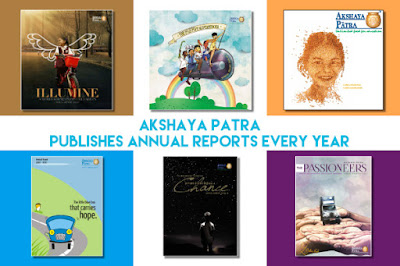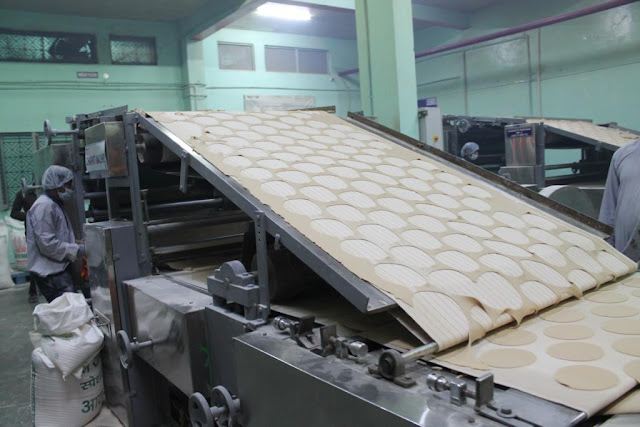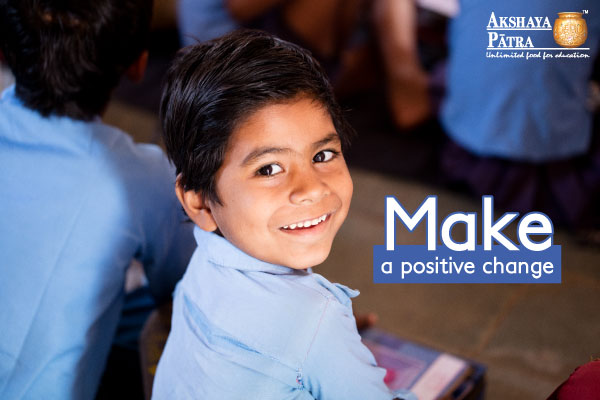Credibility, trustworthiness, and transparency are some of the terms commonly heard while discussing about any organisation, be it a for-profit organisation or a not-for profit organisation. And, as an organisation grows and expands its business or service, these three factors become even more significant. Brands and businesses from across all sectors strives to maintain their credibility and trustworthiness by being transparent to its stakeholders in one way or the other, and publishing Annual Report is one of the many ways.
Annual Reports are comprehensive publications covering highlights, developments and audited financial statements of an organisation. Remaining specific to not-for-profit organisations, Annual Reports are a mandatory document that the organisation has to publish and make available to all its stakeholders. NGO Annual Reports instil a sense of confidence among all its stakeholders regarding the organisation’s operations, growth, and fund utilisation. Heeding to this, many NGOs like The Akshaya Patra Foundation diligently publishes this report annually.
Akshaya Patra is a mid-day meal NGO and is also considered as a top NGO in India. It has been implementing the Mid-Day Meal Scheme since 2000 and currently provides nutritious meals to more than 1.7 million government school children on each school day. The Foundation is headquartered in Bengaluru and has operational units across 36 locations of 12 states in India. The Foundation was selected to partner as a mid-day meal NGO after it fulfilled all the criteria stated in the NP-NSPE 2004 guidelines. One of the criteria in the guideline is “the chosen NGO will furnish to the body assigning the work to it an Annual Report along with an audited statement of accounts in terms of all grants received from the State Government, both in cash and kind, duly certified by an approved Chartered Accountant”, and the NGO is adhering to it since the beginning.
For NGOs, transparency is a key factor in building trust and reliability. Hence, Akshaya Patra ensures that it maintains transparency regarding all its activities as a mid-day meal NGO. The Foundation publishes its Annual Reports at the end of each financial year. It reports all the developments, achievements, and audited financial statements of the completed financial year, along with plans for the upcoming year. This report has received appreciation and recognition in national and global platforms amidst NGO Annual Report category as well as general categories for accuracy in reporting and creative representation of the report.
A non-profit organisation can be considered to be performing NGO role in India in totality only when it makes available details about its operations and services to its stakeholders and complies to standard financial procedures to release its financial statements. In this regard, Akshaya Patra has been keeping up with the prerequisites of a reliable NGO. This top NGO in India complies with the Indian Accounting Standards issued by the Institute of Chartered Accountants of India (ICAI). The Foundation also complies with the International Financial Reporting Standards (IFRS) after adopting this format of reporting in 2008-09. Akshaya Patra has been recognised and appreciated with the:
• ICAI Gold Shield Award for “Excellence in Financial Reporting” for five consecutive years since 2008-09 inducting Akshaya Patra into Hall of Fame. In addition, to the consecutive wins, the Foundation has also has bagged the award for the latter years
• South Asian Federation of Accountants (SAFA) Best Presented Accounts Award for four consecutive years: 2008-09 (Certificate of Merit), 2009-10 (2nd runner-up), 2010-11(Gold Award), 2011-12 (Silver Award) and 2012-13 (Gold Award)
• Australasian Reporting Award 2017
• 24th Annual Communicator Award for Excellence 2018
These accolades for the NGO Annual Reports have increased the credibility of the organisation and has instilled a sense confidence and trustworthiness among all its stakeholders. In conclusion, Annual Reports form a very significant document for an NGO. These reports are a proof that while working towards their respective causes NGOs are accountable and responsible for optimum utilisation of the contributions - monetary and non-monetary, made by their stakeholders.
Annual Reports are comprehensive publications covering highlights, developments and audited financial statements of an organisation. Remaining specific to not-for-profit organisations, Annual Reports are a mandatory document that the organisation has to publish and make available to all its stakeholders. NGO Annual Reports instil a sense of confidence among all its stakeholders regarding the organisation’s operations, growth, and fund utilisation. Heeding to this, many NGOs like The Akshaya Patra Foundation diligently publishes this report annually.
Akshaya Patra is a mid-day meal NGO and is also considered as a top NGO in India. It has been implementing the Mid-Day Meal Scheme since 2000 and currently provides nutritious meals to more than 1.7 million government school children on each school day. The Foundation is headquartered in Bengaluru and has operational units across 36 locations of 12 states in India. The Foundation was selected to partner as a mid-day meal NGO after it fulfilled all the criteria stated in the NP-NSPE 2004 guidelines. One of the criteria in the guideline is “the chosen NGO will furnish to the body assigning the work to it an Annual Report along with an audited statement of accounts in terms of all grants received from the State Government, both in cash and kind, duly certified by an approved Chartered Accountant”, and the NGO is adhering to it since the beginning.
For NGOs, transparency is a key factor in building trust and reliability. Hence, Akshaya Patra ensures that it maintains transparency regarding all its activities as a mid-day meal NGO. The Foundation publishes its Annual Reports at the end of each financial year. It reports all the developments, achievements, and audited financial statements of the completed financial year, along with plans for the upcoming year. This report has received appreciation and recognition in national and global platforms amidst NGO Annual Report category as well as general categories for accuracy in reporting and creative representation of the report.
A non-profit organisation can be considered to be performing NGO role in India in totality only when it makes available details about its operations and services to its stakeholders and complies to standard financial procedures to release its financial statements. In this regard, Akshaya Patra has been keeping up with the prerequisites of a reliable NGO. This top NGO in India complies with the Indian Accounting Standards issued by the Institute of Chartered Accountants of India (ICAI). The Foundation also complies with the International Financial Reporting Standards (IFRS) after adopting this format of reporting in 2008-09. Akshaya Patra has been recognised and appreciated with the:
• ICAI Gold Shield Award for “Excellence in Financial Reporting” for five consecutive years since 2008-09 inducting Akshaya Patra into Hall of Fame. In addition, to the consecutive wins, the Foundation has also has bagged the award for the latter years
• South Asian Federation of Accountants (SAFA) Best Presented Accounts Award for four consecutive years: 2008-09 (Certificate of Merit), 2009-10 (2nd runner-up), 2010-11(Gold Award), 2011-12 (Silver Award) and 2012-13 (Gold Award)
• Australasian Reporting Award 2017
• 24th Annual Communicator Award for Excellence 2018
These accolades for the NGO Annual Reports have increased the credibility of the organisation and has instilled a sense confidence and trustworthiness among all its stakeholders. In conclusion, Annual Reports form a very significant document for an NGO. These reports are a proof that while working towards their respective causes NGOs are accountable and responsible for optimum utilisation of the contributions - monetary and non-monetary, made by their stakeholders.


















